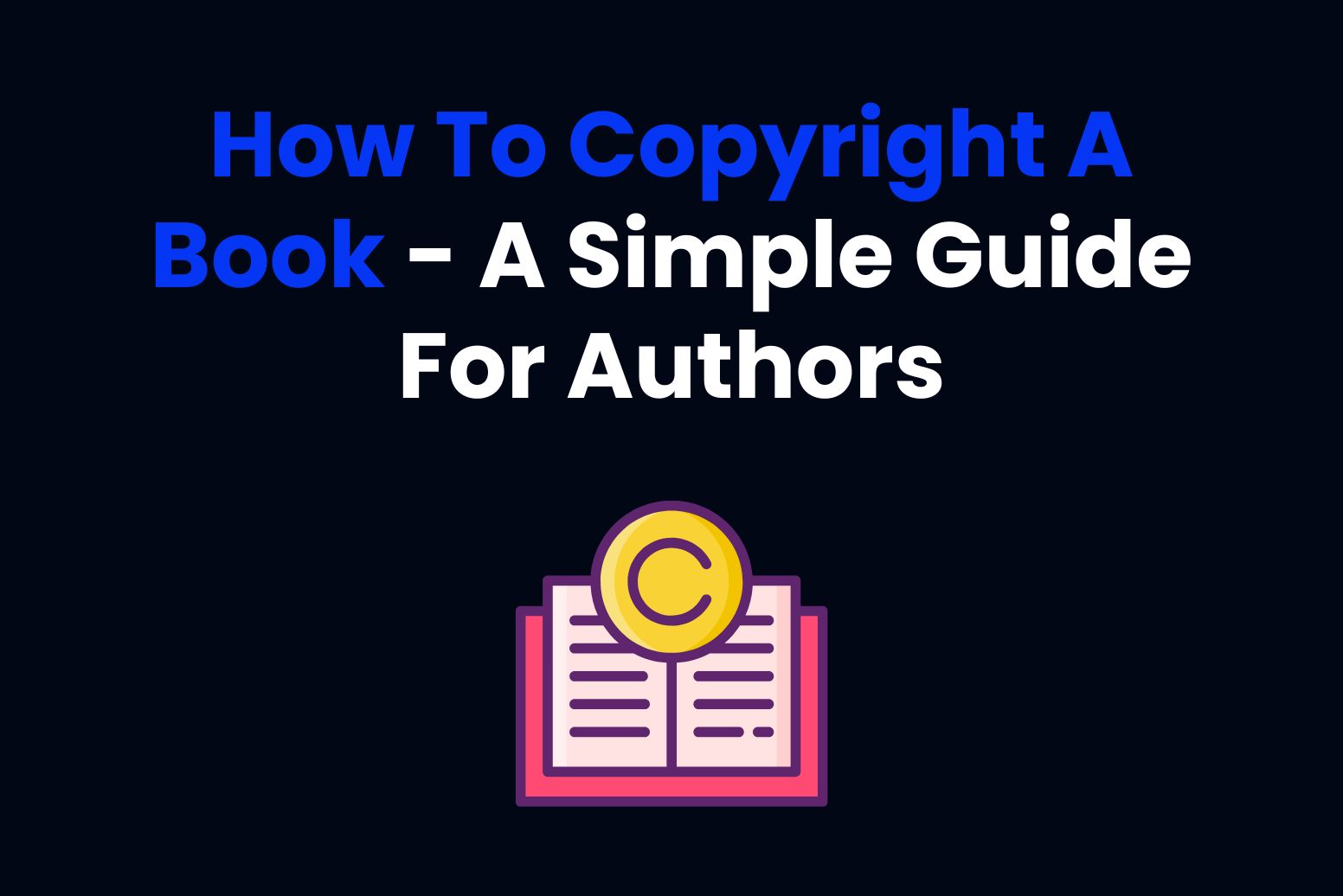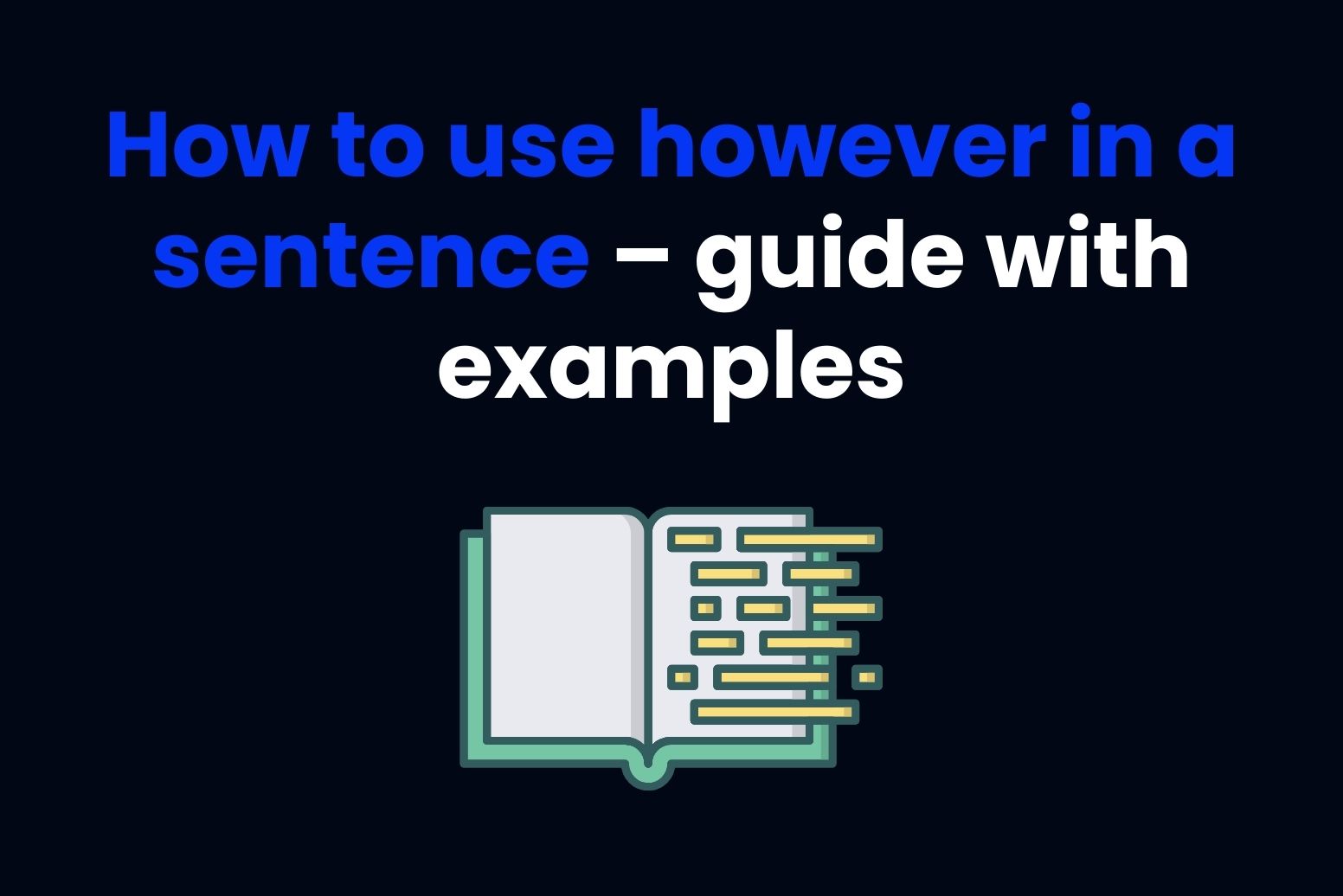Did you just finish writing a book? If yes, then you’ll know that it’s not just a couple of pages but something you’ve dreamed about, put countless hours into, and finally made a reality. And you don’t want anyone else coming along and stealing your work, right? If you know how to copyright a book, you can save your book from theft too! In today’s blog post, we’ll talk about how you can copyright your book and save it from the wrong guys. Let’s dive right in!

What Does It Mean To Copyright a Book?
First things first, let’s talk about what a copyright actually is. Copyright is essentially your book’s legal protection. It ensures that no one can copy your work or use it without your permission. The great news is that your book is automatically copyrighted as soon as you write it. That means, legally speaking, your work is yours as soon as it exists.
But here’s where things get a little tricky. Proving that your book is your creation can sometimes require a little more proof, especially if someone tries to mess with it. This is why you need to take an extra step and actually register your copyright.
Do You Automatically Own Copyright When You Write a Book?
Yes! Under U.S. law (and many other countries, too), you automatically own copyright for your book as soon as it’s written. You don’t have to do anything special because just by completing your manuscript, it’s automatically protected. However, proving you own it becomes more challenging if someone disputes it later on.
Let’s say your book becomes wildly popular, and someone starts distributing it without your permission. If you haven’t officially registered your copyright, you’ll have to spend extra time and effort proving the book is yours. That’s why registering your copyright is an essential step to strengthen your claim and give you more legal footing.
What’s The Difference Between Copyright And Licensing?
Let’s say you have a house. If you own the house, you have it’s copyright. However, if you’re renting the house, it’s called licensing. Copyright gives you exclusive ownership of your work, which means you control who can use your work. Licensing, on the other hand, allows you to grant others permission to use your book under specific terms. Of course, you define these terms.
For instance, you can license your book for translation, film adaptations, or audiobook production and still retain ownership of the original work. So, licensing is a way to monetize your copyright while keeping control of your intellectual property. Now, let’s get to the main point and talk about how to copyright a book.
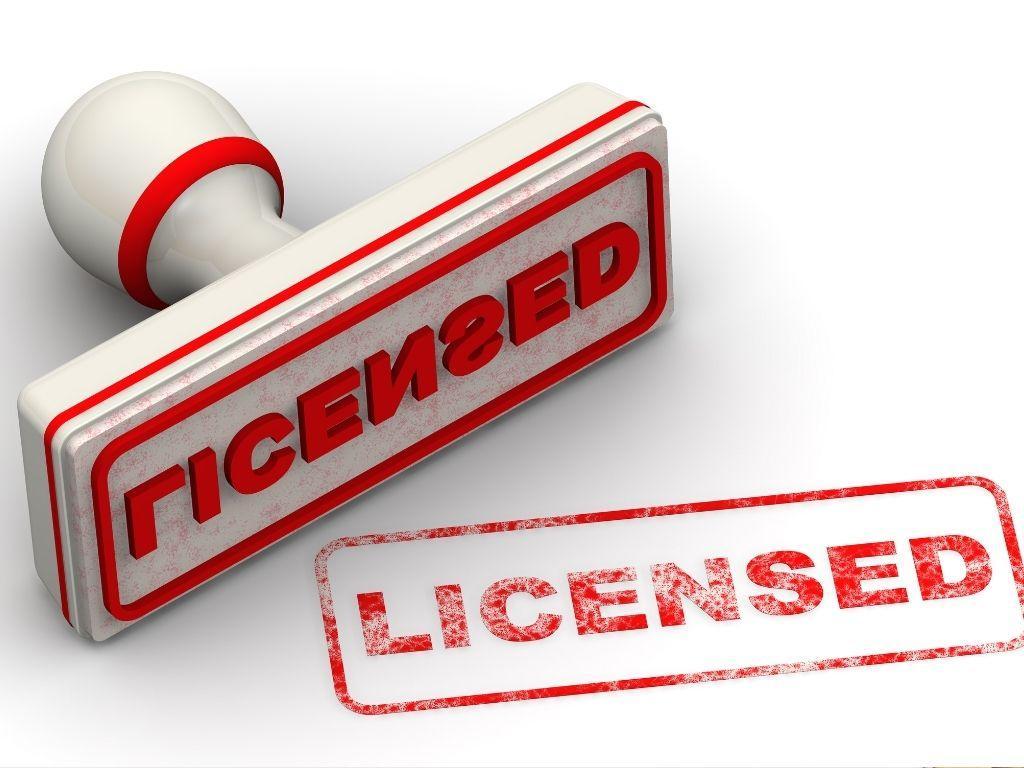
How To Copyright A Book Step-By-Step
Let’s break down how to copyright a book into simple and easy steps:
1. Prepare Your Manuscript For Copyright
Before you do anything else, make sure your book is completely done (yes, this means no last-minute changes or edits). This is the version you’ll be protecting, so polish it until it’s exactly how you want it. Make sure everything is finalized before you proceed.
2. Choose The Right Form Of Registration
In the U.S., the Copyright Office offers different types of forms depending on what you’re registering:
- Form TX is for books covering the text itself.
- If your book includes original artwork, Form VA covers visual works.
- There’s also Form SE for those using specific self-publishing platforms.
Most of the time, Form TX will be what you need. Here’s the link to the website if you need more information: https://copyright.gov/
3. Register Your Copyright Online Or By Mail
Now that your manuscript is ready head over to the Copyright Office. You can either file online or send everything through the mail. We usually recommend filing online because it’s faster and more convenient, and you’ll also get your confirmation much quicker. Here’s what you’ll need:
- The completed application form (either Form TX or VA).
- The non-refundable filing fee (expect to pay around $45–$85).
- A copy of your manuscript, either digital or a physical copy (yes, they want to see what you’ve created!).
Once you’ve submitted everything, the Copyright Office will review it and send you a confirmation.

4. Pay The Copyright Registration Fee
Yes, you’ll have to pay a registration fee when you file your copyright. As we previously mentioned, the fee typically ranges from $45–$85, depending on how you file. Keep in mind that online registration is faster and a little cheaper than submitting everything by mail.
How To Copyright A Book In Other Countries
If you’re outside the U.S., don’t worry because copyright laws have you covered, too! Thanks to international agreements like the Berne Convention for the Protection of Literary and Artistic Works, most countries automatically grant copyright protection as soon as you create something original and fix it in a tangible form (like writing it down or saving it digitally). No need for registration to claim your rights because it’s yours from the moment of creation.
However, registering your book can still be valuable, as it makes proving ownership easier in case of disputes. Here’s a quick look at how copyright works in other countries:
United Kingdom:
While copyright is automatic, registering your work with a service like the UK Copyright Service can provide added protection. It’s not mandatory, but having a registered date-stamped record can save headaches.
Canada:
Copyright applies automatically in Canada too, but you can register your work through the Canadian Intellectual Property Office (CIPO). This makes enforcing your rights more straightforward.
Bonus Tip: Copyright in Canada lasts the creator’s lifetime plus an additional 70 years!
Australia:
Like the UK and Canada, copyright is automatic, and registration is not required. However, tools like Copyright Agency Limited can help if you want extra documentation.
European Union:
Copyright protection is automatic across all EU countries, and you can look into registering with national copyright offices if you want additional proof of ownership.
How To Copyright A Self-Published Book
Self-publishing is a game-changer, but it also means you’re in charge of protecting your work. Platforms like Amazon KDP, Smashwords, or Barnes & Noble Press don’t handle copyright for you, so it’s up to you to register it before uploading your book. The process is similar to how any publisher would copyright a book.
Registration creates an official record of your ownership, making it easier to take action if someone tries to steal your work.
What If Someone Violates My Copyright?
Let’s say someone takes your book and starts selling it as their own. What can you do? Here’s a detailed guide to handling copyright violations:
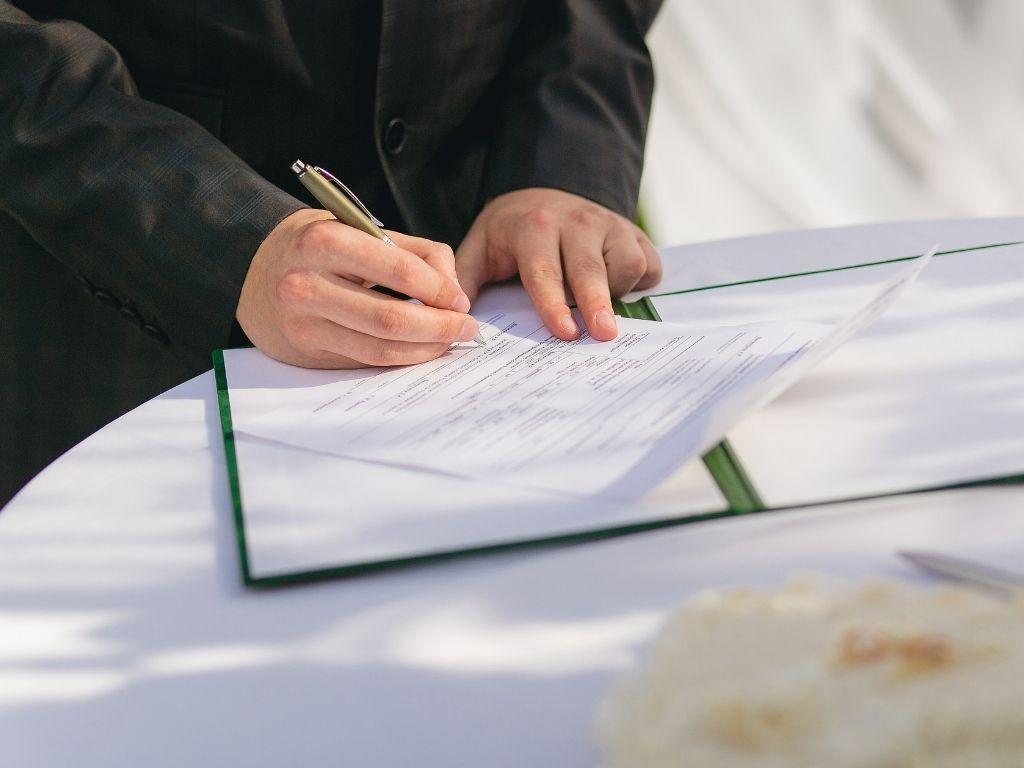
Gather Evidence
This is a crucial step because, without proof, there’s not much you can do. Here’s how to do it:
- Screenshots: Take clear and detailed screenshots of the unauthorized use of your book, including the website, social media post, or any platform where it’s being sold.
- Physical Evidence: If they’ve printed copies, try to obtain one. A physical copy is a strong proof in any legal proceedings.
- Digital Time Stamps: Use metadata from your original manuscript file to show when it was created, proving your work predates the infringement.
- Web Archive Tools: Services like the Wayback Machine can show when the infringing content first appeared online.
Send a Cease-and-Desist Letter
A cease-and-desist letter is a formal way to let the infringer know they’re violating your copyright. It’s often enough to scare them into stopping.
- Tone: Be firm but professional. The goal is to communicate that you know your rights and are prepared to enforce them.
- Details: Include specifics like what they’ve done wrong (e.g., selling your book without authorization) and what actions you expect (e.g., removing the content immediately).
- Deadlines: Give them a clear timeframe to comply, usually 7–10 days, and give them an idea of what will happen if they don’t follow the deadline (a lawsuit).
If you’re unsure how to draft the letter, you can use templates available online or consult a copyright lawyer. You can also get help from best AI apps and websites like Arvin AI to write this letter; here’s an example:
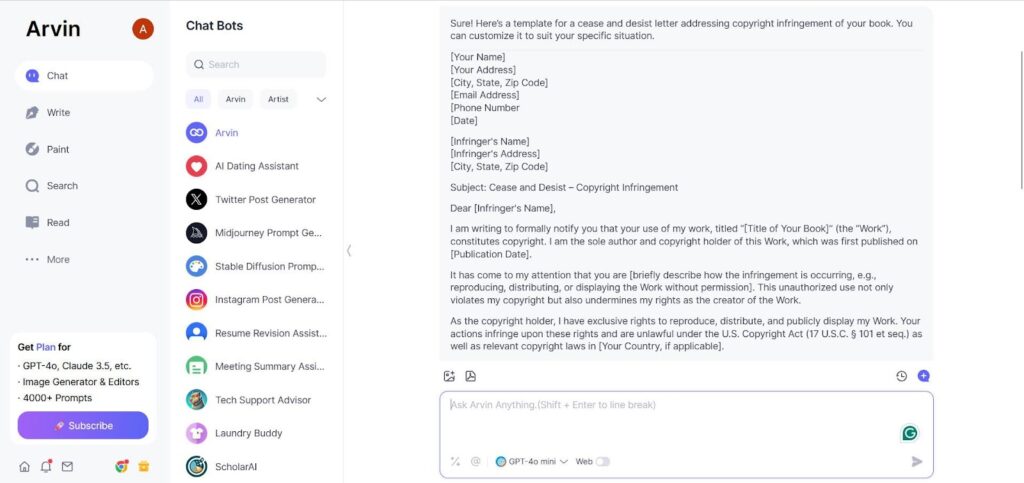
File a DMCA Takedown Notice
If the infringement happens online, the Digital Millennium Copyright Act (DMCA) can work in your favor.
- Submit a DMCA takedown notice to the hosting platform (e.g., Amazon, eBay, or any website). Most platforms have clear procedures for handling copyright claims and will remove the infringing content once notified.
- Be ready to provide proof of your ownership, like your copyright registration or timestamps.
Take Legal Action
If the infringer doesn’t back down, it’s time to take a step further. Here’s what you can do:
- Hire a Copyright Lawyer: They can guide you through the legal process and file a lawsuit if necessary.
- File in Court: Having an official copyright registration makes this step much smoother. Courts will typically require documented proof that you own the work and that the infringer violated your rights.
If the court rules in your favor, you could be awarded damages, including profits the infringer made from your book and compensation for any losses. By now, you’ll have tens of “sorry for the inconvenience” emails coming, so prepare yourself for that.
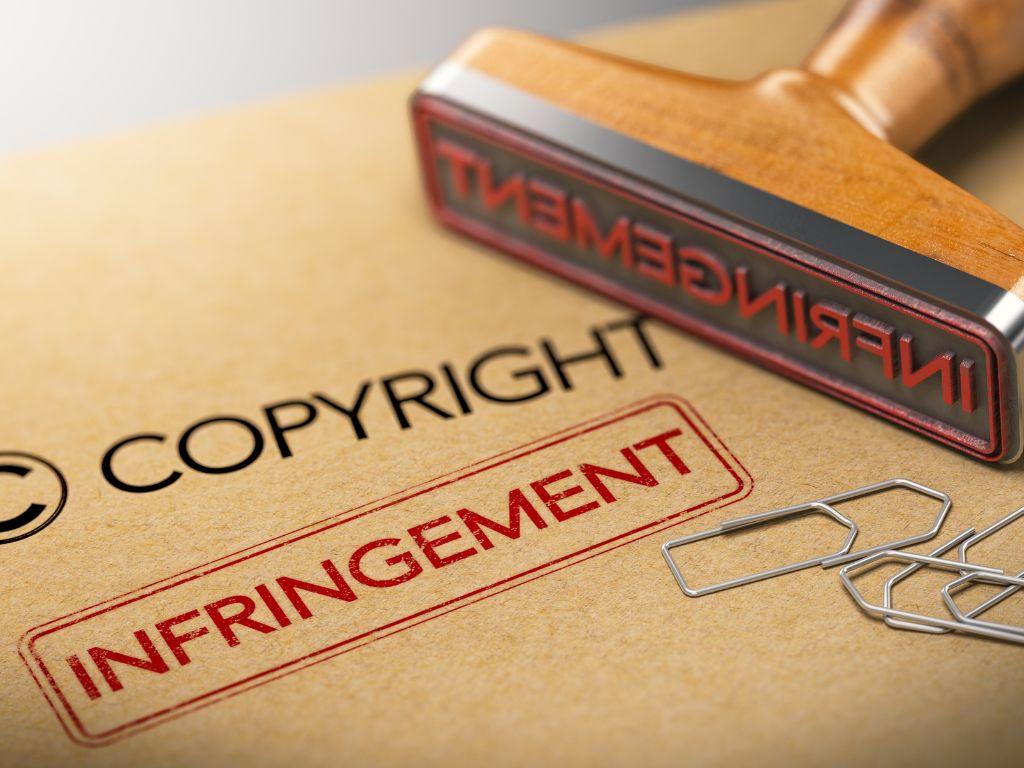
Spread Awareness
Sometimes public pressure can be effective. Without violating any defamation laws, you can inform your audience or readers about the situation, especially if the infringement is harming your brand. This public pressure might prompt platforms or retailers to act faster.
FAQS About How To Copyright A Book
Here are a few of the most frequently asked questions about how to copyright a book:
Is my book automatically copyrighted?
Yes! Your book is automatically copyrighted, once it’s written and fixed in a tangible form. However, registering it with a copyright office provides legal proof and stronger protection.
Do I need to copyright every edition of my book separately?
Not necessarily! When you copyright your book, it covers any edition that may follow. However, there’s an exception: if you make significant changes to the content, such as adding new chapters, or including extra material (like illustrations), you may need to register the updated version to protect the new elements. For minor edits like typos or formatting updates, you’re still covered under the original copyright.
Can I copyright an unpublished manuscript?
Absolutely! Your book doesn’t need to be published to qualify for copyright protection. In fact, if you secure a copyright for your manuscript before publication, it is definitely a smart move to ensure your work is protected as soon as it’s complete.
Does copyright ever expire?
Yes, copyright protection isn’t eternal. In most countries, including the U.S., copyright lasts for the author’s lifetime plus 70 years. After that, the work enters the public domain, meaning anyone can use or reproduce it without permission. For works created by corporations or anonymously, the duration may differ. It typically lasts 95 years from publication or 120 years from creation, whichever is shorter.
Can I use copyrighted content in my book?
Yes, but there’s a catch: you need explicit permission from the copyright owner. This permission, often called a license, allows you to legally include someone else’s copyrighted content, like quotes, images, or music. Make sure the agreement is in writing and outlines the scope of use (e.g., how long you can use it and in which formats).
Final Take On How To Copyright A Book
And there you have it! Now you know everything about how to copyright a book. By taking the time to protect your hard work, you can rest easy knowing your creative masterpiece is safe. Sure, it might feel like an extra step, but in the end, it’s worth your time!If you’re still working on your book or polishing the final draft, remember that writing doesn’t have to be a solo journey. Tools like Arvin AI can help smooth out tricky sentences, spark fresh ideas, or tidy up your grammar. So, what’s next? Go finish that book, get it registered, and let your voice shine. Your story is worth sharing, and now it’s protected, too!

